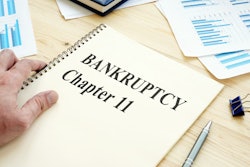NEW YORK (AP) -- New Yorkers were still free to gulp from huge sugary drinks Tuesday, after a judge struck down the city's pioneering ban on supersized sodas just hours before it was supposed to take effect, handing a defeat to health-conscious Mayor Michael Bloomberg.
The big drinks ban — the first of its kind in the U.S. —sparked reaction from city streets to late-night TV talk shows, celebrated by some as a bold attempt to improve people's health and derided by others as another "nanny state" law from Bloomberg during his 11 years in office.
State Supreme Court Justice Milton Tingling's Monday ruling was seen as a victory for the beverage industry, restaurants and other business groups that called the rule unfair and wrong-headed.
Tingling said that the 16-ounce (half-liter) limit on sodas and other sweet drinks arbitrarily applies to only some sugary beverages and some places that sell them. Tingling issued a 36-page ruling that examined the appropriate scope of power for an administrative board for regulations. The judge also said the Bloomberg-appointed Board of Health intruded on the City Council's authority when it imposed the rule.
The drinks limit follows other efforts by the Bloomberg has made to improve New Yorkers' eating habits, from compelling chain restaurants to post calorie counts on their menus to barring artificial trans fats in restaurant food to prodding food manufacturers to use less salt. The city has successfully defended some of those initiatives in court.
The city has also won fights over outlawing smoking in bars and offices, and has promoted breast-feeding over infant formula. Last week, the Bloomberg administration announced a campaign to warn young people they risk hearing loss from cranked-up earphones.
Bloomberg, who has championed the ban as a novel measure for fighting obesity, vowed to appeal the decision.
"We believe the judge is totally in error in how he interpreted the law, and we are confident we will win on appeal," Bloomberg said. He added: "One of the cases we will make is that people are dying every day. This is not a joke. Five thousand people die of obesity every day in America."
For now, though, the ruling it means the ax won't fall Tuesday on extra-large sodas, sweetened teas and other high-sugar beverages in restaurants, movie theaters, corner delis and sports arenas.
Because of the limits of city authority and exemptions made for other reasons, the ban on big beverages wouldn't cover alcoholic drinks or many lattes and other milk-based concoctions, and it doesn't apply at supermarkets or many convenience stores.
In defending the rule, city officials point to the city's rising obesity rate — about 24 percent of adults, up from 18 percent in 2002 — and to studies tying sugary drinks to weight gain. Care for obesity-related illnesses costs government health programs about $2.8 billion a year in New York City alone, according to city Health Commissioner Dr. Thomas Farley.
The judge acknowledged the impact of obesity on the city's residents, and noted that those bringing suit likewise didn't dispute obesity is a significant health issue, but questioned how much sugary drinks can be blamed for it. Ultimately the judge said whether the issue of obesity is an epidemic is not the key issue here, but whether the board of health has the jurisdiction to decide that obesity is such an issue that it could issue a cap on consumption of sugary drinks.
Critics said the measure is too limited to have a meaningful effect on New Yorkers' waistlines. And they said it would take a bite out of business for the establishments that had to comply, while other places would still be free to sell sugary drinks in 2-liter bottles and supersized cups.
"The court ruling provides a sigh of relief to New Yorkers and thousands of small businesses in New York City that would have been harmed by this arbitrary and unpopular ban," the American Beverage Association and other opponents said, adding that the organization is open to other "solutions that will have a meaningful and lasting impact."
Beverage makers had expected to spend about $600,000 changing bottles and labels, movie theater owners feared losing soda sales that account for 10 percent of their profits, and delis and restaurants would have had to change inventory, reprint menus and make other adjustments, according to court papers.
The city had said that while restaurant inspectors would start enforcing the soda size rule in March, they wouldn't seek fines — $200 for a violation — until June.
In striking down the rule, Tingling further said that the Board of Health went beyond its authority when it approved the size limit in September. The rule strayed into territory that should belong to the elected City Council, not the board appointed by Bloomberg, Tingling wrote.
Some restaurants had already ordered and started using smaller glasses for full-sugar soda, while others began experimenting with freshly squeezed juices as alternatives to soda for children's parties. Dunkin' Donuts shops have been telling customers they will have to sweeten and flavor their own coffee. Coca-Cola has printed posters explaining the rules.
Bloomberg urged businesses to comply despite the court ruling, and not just because the city may yet prevail.
"If you know what you're doing is harmful to people's health, common sense says if you care, you might want to stop doing that," he said.
But an opponent of the measure said the court's ruling "serves as a major blow to Mayor Michael Bloomberg's incessant finger-wagging."
J. Justin Wilson at the Center for Consumer Freedom, created by restaurants and food companies, said, "The court confirmed what most New Yorkers already know: They don't need a government regulator to dictate their diet choices. New Yorkers should celebrate this victory by taking a big gulp of freedom."
Associated Press writer Jennifer Peltz contributed to this report.






















